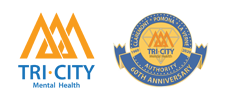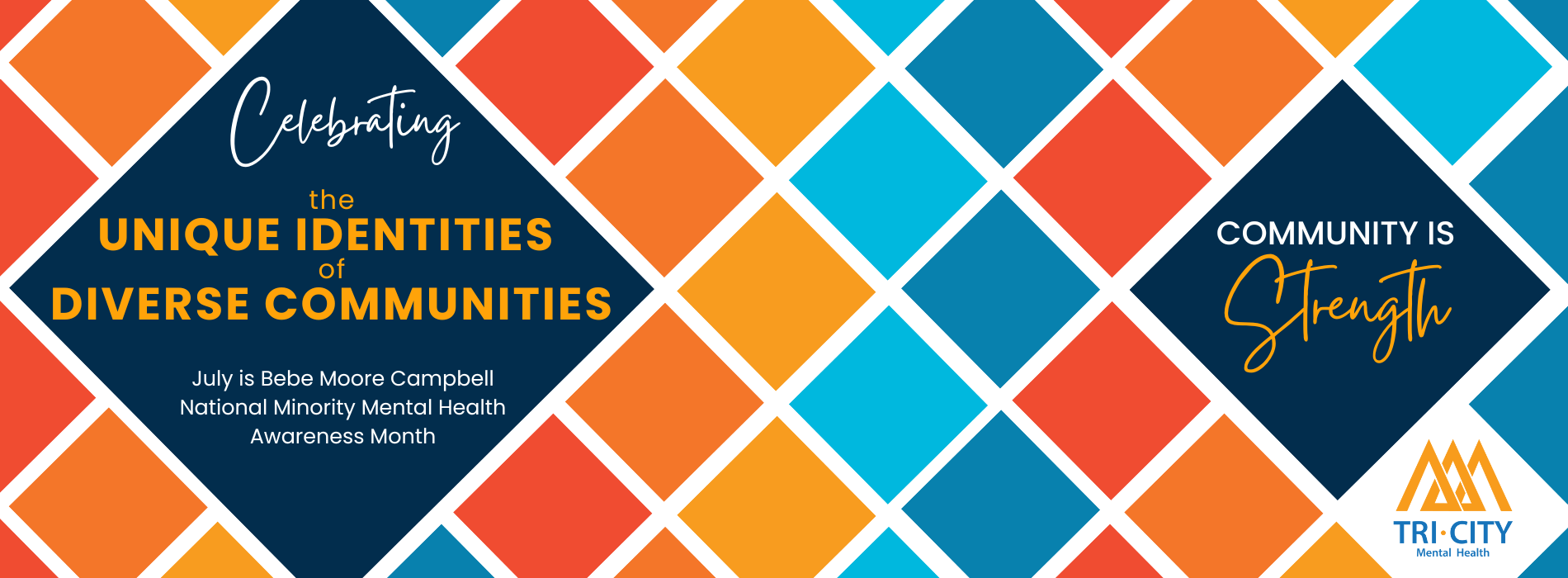In this article:
Mental health conditions do not discriminate based on race, color, gender, or identity. Anyone can experience the challenges of mental illness regardless of their background. According to the National Alliance on Mental Illness (NAMI), every year one in five adults will experience a mental illness. However, an individual’s background and identity can make access to mental health treatment much more difficult.
In 2008, July was designated as Bebe Moore Campbell’s National Minority Mental Health Awareness Month to raise awareness about disparities and barriers in the mental health system and eliminate the stigma that black, indigenous, and people of color (BIPOC) and LGBTQIA+ communities face when seeking help. Bebe Moore Campbell was an American author, journalist, teacher, and mental health advocate who worked tirelessly to shed light on the mental health needs of the Black community and other under-represented and historically marginalized communities.
Taking on the challenges of mental health conditions, health coverage and the stigma of mental illness requires a commitment from all of us. In many communities, these problems are compounded by an increase in barriers to care, cultural stigma, and lower quality of treatment options. Educating yourself and others and spreading the word about these issues can help lessen the shame surrounding minority mental health care and improve access to quality treatment.
Should I use the word “minority” or “BIPOC?”
The term “minority,” though once used to accurately describe many cultural groups who met the technical definition by demographic numbers, is now considered by many people of color to be diminishing, exclusive, and problematically centered on whiteness. Tri-City Mental Health is listening to the lived experience voices of the next generation, who prefer the term Black, Indigenous, and people of color (BIPOC) and we are therefore using this term out of respect for the evolving language of empowerment and inclusion. The term “BIPOC” is more relevant for today and intentionally places Black and Indigenous communities apart from people of color as a way to acknowledge the unique characteristics, experiences and heightened inequities of these groups.
Ways You Can Get Involved
Here are some ways you can celebrate Bebe Moore Campbell National Minority Mental Health Awareness Month, also now more commonly known as BIPOC Mental Health Awareness Month.
Find Community
Community and connection may be different for everyone. For BIPOC individuals, this need often also centers around safety, inclusion, and purpose. In neighborhoods, individuals are able to build stronger bonds and often look out for one another. Visit Mental Health America's 2023 Mental Health Campaign Toolkit: Culture, Community and Connection for more resources and check out the list below for more ideas on making stronger community connections:
Become a Member of the Tri-City Wellness Collaboratives
Tri-City’s Wellness Collaboratives were created to form a joint alliance with community members, service providers and local organizations to advocate for and effectively meet the diverse mental health needs of consumers, individuals, families and communities in Pomona, Claremont and La Verne.
-
-
- Educate your community about available resources, mental health services, trainings, and events to support wellness and decrease stigma.
- Celebrate wellness with your community by planning community events.
- Advocate for your community by identifying and prioritizing community needs.
-
For more information, contact dei@tricitymhs.org or visit the Diversity, Equity & Inclusion page.
Supporting Community Wellness
-
-
- Get involved in community activities. Join community organizations or volunteer for community events. If there isn’t a community organization, consider creating one.
- Create a community initiative. Discuss common issues among your community members to determine community needs. Ask your neighbors about their experiences in your area. If there is a common need and interest, this could be an opportunity to unite and act for change.
- Attend community events. Go to events such as festivals, fairs, and community gatherings to meet others in your community and build relationships.
- Reach out to neighbors. Introduce yourself to neighbors and engage in friendly conversation to establish a support network.
- Create safe spaces. Consider getting involved with community gardens or neighborhood watch groups to build a sense of safety and security.
- Participate in cultural events. Join in if your community hosts cultural events.
- Listen to and learn from others. Take time to hear from others in the community to build understanding, inclusivity, and empathy.
-
Upcoming Events
Culture and Community: Impacts on BIPOC Mental Health | Mental Health America (MHA) Webinar
Tuesday, July 11, 2023 at 10:00 am - 11:00 am
Register for this webinar
Mental Health First Aid (MHFA) Training | Tri-City Mental Health
Wednesday, July 12, 2023 at 8:00 am - 4:30 pm
Location: 2001 N. Garey Ave, Pomona, CA (MHSA Administrative Building)
Register for this webinar (Register by July 6)
We Take Care of Us: BIPOC-led Community Spaces Providing Healing and Support | Mental Health America (MHA) Webinar
Tuesday, July 18, 2023 at 10:00 am - 11:00 am
Register for this webinar
Honoring the Legacy of Bebe Moore Campbell: A Community Healing Event | NAMI Urban Los Angeles
Saturday, July 29, 2023 at 10:00 am - 3:00 pm
Leimert Park (4305 Degnan Blvd Suite #104, Los Angeles, CA 90008)
Event Sign Up
BIPOC & LGBTQIA+ Resource Directory
We have compiled a list of culturally-relevant mental health resources for Black, indigenous, and people of color (BIPOC) and LGBTQ+ communities. This is not a comprehensive list, but rather an access point for those looking for more information about mental health and wellness. The information and resources presented here are not intended to replace mental health treatment. If you are experiencing distress, please contact us toll-free at (866) 623-9500.
Black and African American Communities
Asian American and Pacific Islander Communities
Latino/a/x and Hispanic Communities
LGBTQIA+ Communities
Native and Indigenous Communities
-
-
- One Sky Center - The American Indian/Alaska Native National Resource Center for Health, Education, and Research
- WeRNative
- Indigenous Story Studio
- CultureCard: A Guide to Build Cultural Awareness: American Indian and Alaska Native (SAMHSA)
- Resources Specific to American Indian/Alaskan Native (AI/AN) Communities
- Two Spirit and LGBTQ Health
- Cultural and Community: Suicide Prevention Resources for Native Americans in California
-
Additional Resources for Continued Learning & Support

